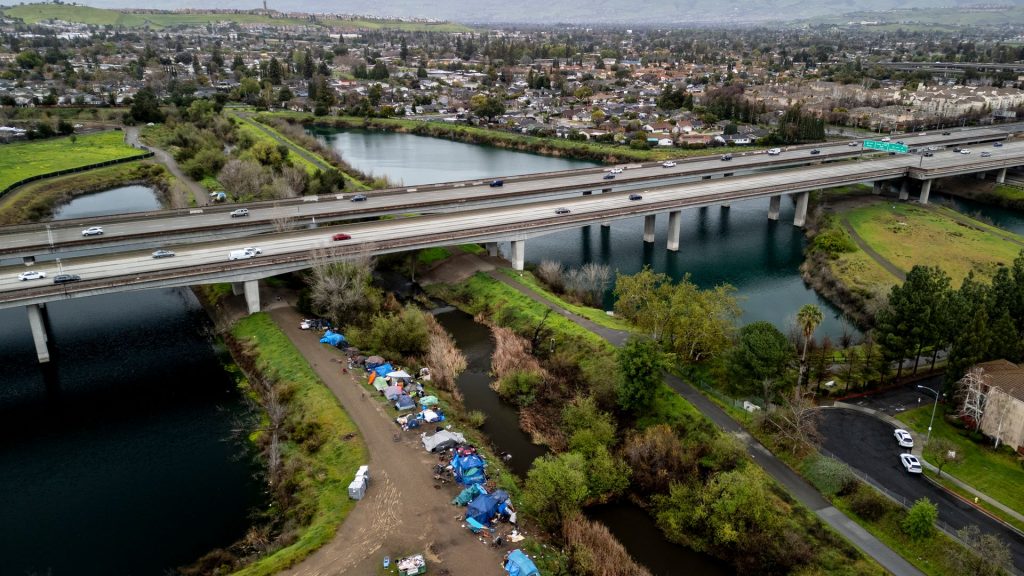California city adopts new homelessness policy: shelter or handcuffs

“Homelessness can’t be a choice.” Those are the words of San Jose Mayor Matt Mahan, who put forth the Responsibility to Shelter Initiative. This new provision can put homeless people behind bars if they refuse shelter.
City council shapes new homelessness provision
On Tuesday, the San Jose City Council voted 9-2 to change the city’s code of conduct. Moving forward, a person experiencing homelessness can be arrested for trespassing if they refuse shelter three times within 18 months. In reaction to the passage, Mahan posted on X, “It won’t end the crisis, but it’ll give us a real shot at helping those the status quo leaves behind.”
According to the mayor’s office, 200 individuals living on the streets of Santa Clara County die each year despite millions of dollars spent to combat homelessness. Roughly 1-in-3 homeless individuals are declining transitional housing when it’s offered, according to recent city data. Officials say the refusals highlight ongoing challenges in connecting people with temporary shelter and support services.
Unbiased. Straight Facts.TM
San Jose city data shows 1-in-3 homeless residents refuse temporary housing.

Ahead of the Tuesday vote, Chief Paul Joseph clarified the San Jose Police Department’s role.
“We’re not making the arrest for refusing to take shelter. We’re making an arrest for trespassing,” he clarified. “The purpose of this revision in the code of conduct is to employ the enhanced engagement and make sure that every attempt has been made to try to get someone into shelter and make that offer.”
Vice Mayor Pam Foley said the mayor’s proposed budget would support housing efforts. She also said it would set an example by actively addressing the crisis. Mahan’s budget for fiscal year 2025–2026 aims to close a $35.6 million shortfall while preparing for an even larger deficit next year. The more than $5 billion budget supports the expansion of interim housing. It also funds $60 million in new affordable housing development and preserves investments in libraries, parks, and city beautification.
The ordinance has received support from the San Jose Police and Firefighter Unions. Jerry May, President of Firefighters Local 230, said, “The City’s expansion of interim housing is a major step forward, but for it to be effective, it must be utilized. Mayor Mahan’s initiative provides a necessary framework to ensure resources are used while addressing the growing safety risks of encampments.”
Opposition to the new provision
Those in opposition to the provision said it doesn’t take into consideration a homeless person’s mental health. They say it also doesn’t consider the trauma they’ve endured that led them to live in an encampment.
“We continue to oppose the plan to focus resources and policies on arresting unhoused people,” said CEO Kyra Kazantzis of the Silicon Valley Council of Nonprofits. “How will the city avoid arbitrary and or discriminatory decisions to arrest people?”
Eugene Torres is a resident and program director at Family Supportive Housing. He said city leaders are ignoring the real issue of providing affordable housing to those who need it. “The current proposal lacks the clarity, safeguards and services that are needed to invest and truly help San Jose’s unhoused community,” he expressed.
In a firsthand account published by San José Spotlight, three formerly homeless residents urged city leaders to reject proposed ordinances that would criminalize homelessness. They described how barriers like long shelter waitlists, restrictive rules and lack of trauma-informed care kept them on the streets.
Supreme Court decision
In 2024, a U.S. Supreme Court ruling cleared the way for states and cities to enforce bans on homeless encampments, expanding their authority to regulate public spaces. The court’s 6-3 decision in Grant’s Pass v. Johnson upheld a city ordinance in Oregon that prohibits sleeping in public. The ruling said such bans do not violate the Eighth Amendment’s protections against cruel and unusual punishment.
The ordinance will take effect on July 1, but officials said enforcement could take 60 to 90 days.





